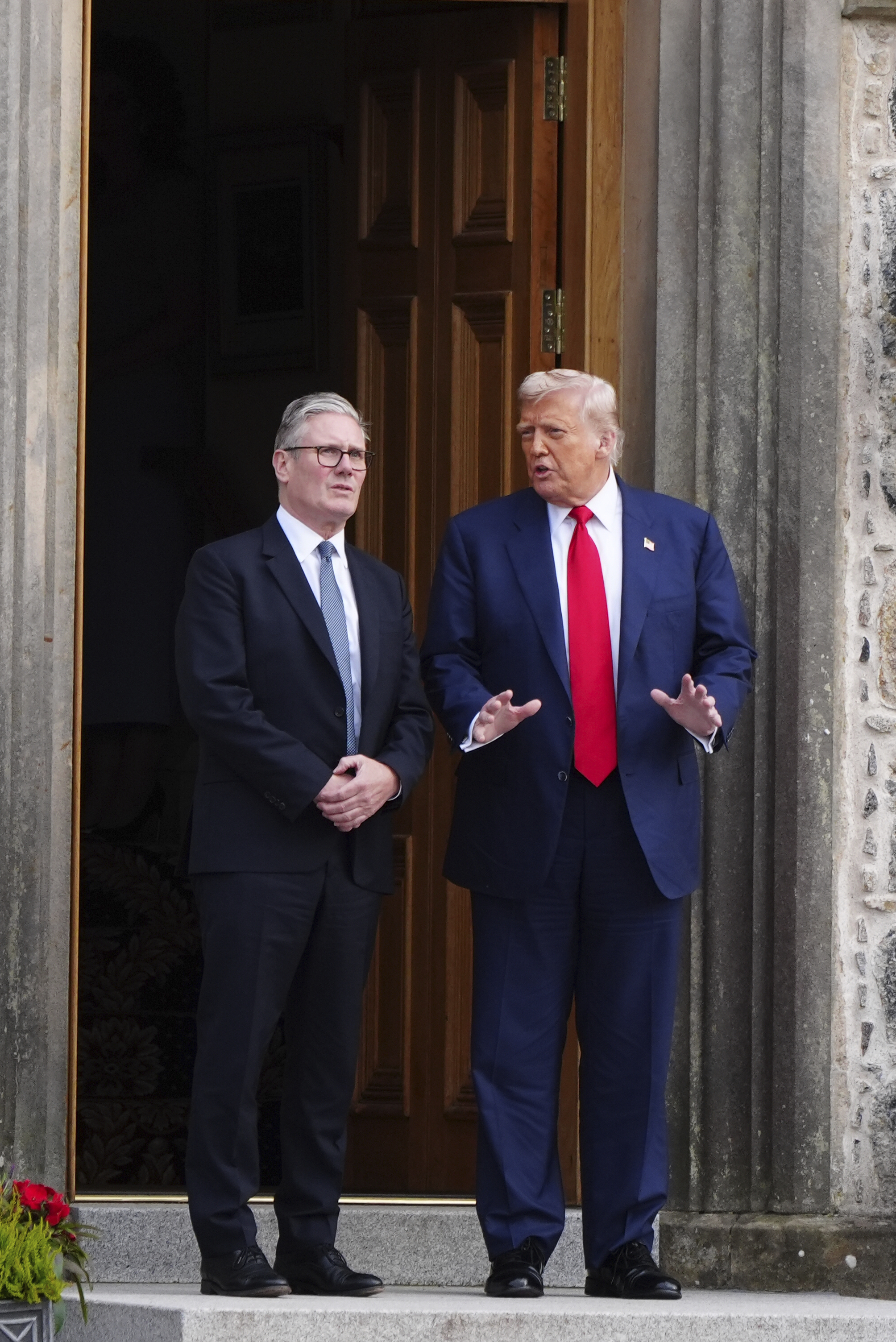The United Kingdom will formally recognize the Palestinian State in September, just before the United Nations General Assembly, unless the Israeli Government led by Benjamin Netanyahu takes "substantial measures" to end the humanitarian crisis in Gaza, makes it clear that it will not annex the West Bank, and commits to a long-term peace process leading to a solid solution based on the Constitution of two States, one Jewish and the other Palestinian.
A spokesperson from the Prime Minister's residence, Downing Street, justified the decision due to "the increasingly intolerable situation in Gaza and the diminishing prospects of a peace process towards a two-State solution." These two factors make it "the right time to advance towards that goal now."
Keir Starmer, who communicated his decision to the Israeli Prime Minister, Benjamin Netanyahu, insisted that there is no equivalence between Israel and the Palestinian terrorist group Hamas, which initiated the current war on October 7, 2023. The United Kingdom maintains its demands on Hamas, which include the release of all hostages in its possession (around 20 alive and the bodies of as many), acceptance of a ceasefire, complete unilateral disarmament, and renunciation of any political role or function in a future Gaza government.
Israel's response was almost immediate. The Israeli Ministry of Foreign Affairs stated in a post on X that the UK's plans constitute a "reward for Hamas" and would harm efforts to achieve a ceasefire in Gaza.
Starmer has decided to invest political capital in solving the humanitarian crisis in Gaza. The British Prime Minister had called for an urgent meeting of his cabinet - the equivalent of the Spanish Council of Ministers - to address the issue, even though the Government was on vacation.
The Labour Prime Minister (a party equivalent to social democracy on the continent) has always insisted that the United Kingdom would only recognize Palestine if there is a peace plan in place aimed at creating two states, one Israeli and the other Palestinian, which in practice meant indefinitely postponing the decision, at least until the situation in the region changes radically. And that has been his announcement today.
A third of Labour MPs and several members of Starmer's cabinet have pressured him to recognize Palestine, following the steps of French President Emmanuel Macron, who announced that France will make that decision in September and even used his speech before the British Parliament three weeks ago to urge London to take the same action. Among those demanding recognition are very close and influential collaborators of the Prime Minister, such as the Deputy Prime Minister and Minister of Housing, Angela Rayner, positioned to the left of Starmer but far from the hard-left wing of the Labour Party, which demands measures that the Prime Minister will not fulfill, such as an arms embargo on Israel, and some of whose members have split from Labour for, among other reasons, the Gaza war.
All this pressure from the grassroots and his own collaborators is causing Starmer to soften his stance. An indication was given on Friday when the British Treasury Secretary, James Murray, stated that the Government is "fully committed to recognizing Palestine," but specifying that the question was "when."
Starmer seems to have played his cards with Donald Trump. The British Prime Minister, who has the same expressiveness as a stake, spent Monday with the most histrionic leader in the world at the moment - Trump - talking largely about Palestine and Ukraine. Despite personality differences, the meeting went well, and Trump made a 180-degree turn in his position regarding the conflict.
Thus, in a press conference yesterday, Monday, Trump declared that the images coming from Gaza "are truly of famine". This contradicted his own position, maintained practically until two days before, that Israel was doing the right thing in the territory, which implied accepting the words of the Prime Minister of that country, Benjamin Netanyahu, that there are no humanitarian problems in the region. "We have to make those children eat," said Trump, regarding the delivery of aid. The United States' position is crucial because almost all of Israel's Armed Forces are manufactured or funded by the US.
Trump's new position after his meeting with Starmer seems to be one of the elements that have led Netanyahu to allow the entry of humanitarian aid. Another factor that may have played a minor role, according to the EU, is Israel's exclusion from a European scientific program. But the big question is if Starmer wants to make it seem that the arrival of humanitarian aid to Gaza will open the doors to a stable peace, he will have to work hard to achieve it.
Because the new system, which has the collaboration of Egypt, Jordan, and Israel - the latter essential for the success of the project - establishes a series of entry and distribution points for food in Gaza apart from those of the US NGO GHF (Humanitarian Support for Gaza), whose system has caused hundreds of deaths among Palestinian civilians at the hands of Israeli soldiers and US contractors. This implies that Israel will reopen a series of border crossings in addition to air and land routes from Jordan and Egypt to facilitate the entry of food, fuel, and other essential supplies. The plan also includes the reconstruction of critical infrastructure and the protection of humanitarian personnel.
These objectives do not seem sufficient to end a conflict that has lasted 21 months and has cost 60,000 Palestinian lives to date, according to the Gaza Ministry of Health, controlled by the terrorist group Hamas, or more than 74,000 until October 2024, nine months ago, according to an independent study published in the British scientific journal 'The Lancet'. In addition, nearly 2,000 Israelis - including civilians and military personnel - have died since the war began. Hamas holds 40 hostages of that nationality, of whom around 20 seem to have died.
